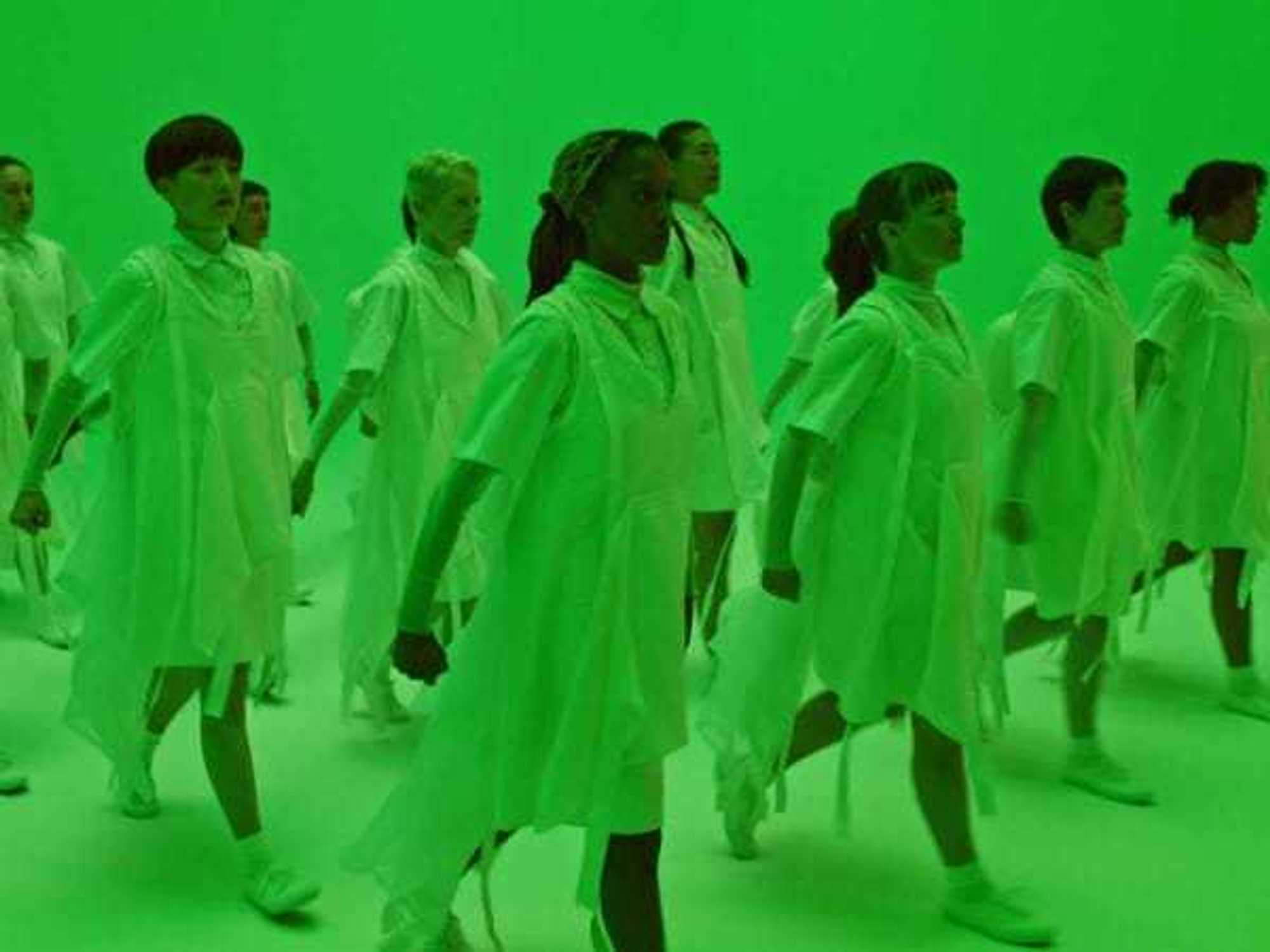Dark, meaningful fiction
Local horror author Lee Thomas is helping Austin stand out on the literary map
Central Texas is now a hotspot for dark fiction, and Austin is the epicenter of that movement. Nate Southard, Ed Kurtz, Wrath James White, Boyd Harris, Robert Jackson Bennett and Shane McKenzie are all top-notch authors that call this city home. However, it's Lee Thomas' recent Lambda Literary Award — his second — which cements Austin as an important place in the current literary landscape.
Thomas, who has a Bram Stoker Award to go along with his two Lambda Literary Awards, has published three YA novels with HarperTeen under pseudonyms, as well as horror novels and short stories with a variety of presses. While the two genres are worlds apart, Thomas feels horror gives him a chance to explore the ugliness in the world.
"I think the genre offers me something special," said Thomas. "Beyond providing thrills, which are a lot of fun, it's a terrific lens through which to view human nature. I mean let's face it, people can be pretty lousy to one another. They often are. Horror lets me examine human cruelty and frailty, while keeping some distance from it. I can create a situation in which people do behave shamefully toward one another, but there is an otherworldly cause. In some ways it's a form of denial: I don't want to believe people are total asshats, so I attribute their digressions to monsters or supernatural influences."
Thomas also believes horror is great for adding texture to a piece.
"For instance, my novel The German looks at personal and social identity, and I think it covers these things pretty well," said Thomas. "With a few minor tweaks, the novel could have been a mainstream work that focused on the characters' conflicts with identity and still been quite effective. But by embracing the darker elements, I was able to add layers to the themes and pump up the suspense, which made for a richer reading experience."
"Smart and entertaining stories are not the exclusive property of the hetero, white, middle-class. Fortunately a host of new genre authors are taking on the challenge of literary integration." - Lee Thomas
One of the things that sets Thomas apart from other writers is the way he openly shares his knowledge and experiences with up-and-coming authors. His expertise and willingness to discuss the literary world have also made him the go-to guy when talking about the future of publishing and how the onslaught of self published and free ebooks affects the industry.
When confronted with that question this time around, Thomas said readers' behavior is what will make the difference and keep traditional books going. "I think readers will know the difference between a poorly written book and one of quality, as to whether they care or not is a different question; that is specific to the reading group," he said.
What we're seeing is a faction of readers driven not by author reputation, book reviews, publisher legitimacy, or any other indicator of quality, but rather driven by price point. They have nothing to lose by loading up their Kindles with 200 freebies, because they know they can read a single paragraph and if a book doesn't grab them, they can dump the whole thing with a few taps of the finger.
They paid nothing for the titles, so the books have no value to them. Free equals disposable in this equation. Readers may not even bother reading the first paragraphs because the gathering is the important aspect of the process for them. They want to acquire.
I've downloaded dozens of free songs to iTunes, because they were free, but few of them find their way onto my playlists. I don't remember the band names or even the genres of music. In short, I have acquired an artist's work, but it hasn't touched me, and it means next to nothing. Plus, if an author values his/her work at $0.00, then I figure it's worth $0.00. Essentially, they have told me that their book is worthless.
Thomas considers giving books away a valid, logical marketing strategy, one that many authors use in the hopes of building a readership. However, he thinks the practice has an adverse effect on the market and changes the way readers look at books.
"I'd suggest you consider the practice of supermarket samples," said Thomas. "It's nice to get a sample of cheese or the latest dessert product while you're perusing the supermarket, but let's say the supermarkets decided to deliver these samples and the supply becomes never-ending. If you're not a foodie, you could well live on the plethora of samples being set at your door. You wouldn't worry about quality or flavor so much, because you never have to pay for food again."
"That's the market authors have created," Thomas continued. "Readers who shop by price point aren't going to do much for an author's career when it comes time to buy books. They're too busy filling up on samples."
Besides sharing what he considers is a bad practice, Thomas also talked about what authors should do. For Thomas, whether an author's book lands at a major New York house, a small press or is self-published the author has to take on the role of publicist.
"The days of 'my publisher will handle that' are well and truly over, so it's a good idea to pick up a few basics, like learning to write your own press releases and navigating the oceans of social media without becoming a nuisance," said Thomas.
"I mean, inviting people to virtual events on Facebook is a good way to get un-friended fast, because it's something of a non-event. The participants get little or nothing out of it, except the opportunity to buy. Not a big motivator I'd think. Similarly, using social media to do nothing but promote your work is likely to backfire if only because the notices of 'buy my book' are spam, and people begin to equate your name with hard sell rather than personality."
Thomas' work always tells a great story, but what makes it award-winning literature is that there's always a story behind the story. He creates nuanced, smart narratives and doesn't concentrate on just scaring readers.
I put a good deal of effort into layering my stories, but much of that happens as it unfolds. I don't start with particularly complex ideas, but as characters develop and situations evolve certain themes come clear and that's when things get fun. For one thing, it keeps me interested. I have read genre stories for decades, and I'm seeing a lot of repetition in ideas and even individual scenes. Often enough we hear that there are no new stories to tell. So our originality is expressed in the combination of elements we choose to utilize in their telling. I think this is true.
Stagnation is apparent in a good deal of horror fiction, which can read as stale, despite being well written, because so much of the ground has already been covered. As such it becomes important to share the focus of the story with something else, whether it be unique character dynamics or complexity of theme.
Not only do I not want readers to feel "been there, done that" when they read one of my stories, I don’t think I’d be able to write one if I felt that way about it. It’s a balancing act in which the fantastic or horrific has to be treated with the same respect as the human drama (and vice versa naturally). When I hit that balance, I am wholly engaged in the work.
The Lambda Literary Award is given to the best literature out there, but it also happens to be an award given by and to members of the LGBTQ community. This makes Thomas' work much more relevant because it comes from a minority voice.
"One of the things we try to do as writers is to explore our culture and the greater world," said Thomas. "We're trying to work things out and understand. The world I see is not comprised solely of white, middle-class, heterosexual men, so trying to write about that group exclusively would ring false and essentially reveal nothing of interest to me (I would also find it limiting and dull to write exclusively about gay characters)."
"Straight, white guys belong in fiction, but they can't be the end-all be-all of fiction," Thomas continued. "Yet these sorts of characters carry an inordinate number of horror stories on their shoulders, and power minorities — women, gays and lesbians, transgenders, persons of color — if they are used at all, take secondary or tertiary roles. They are the colorful background against which the white guy moves. For contemporary fiction, that's simply unacceptable. It's socially anachronistic."
According to the author, writers who explore diversity are more likely to create character dynamics and situations readers haven't seen before or at the very least haven't seen as frequently. Also, Thomas said it's important to note that we've entered a period of “post-minority” literature.
"In a 2005 article for The New York Times, author David Leavitt defines the post-gay literary movement like this: '...Rather than making a character's homosexuality the fulcrum on which the plot turns, [authors] either take it for granted, look at it as part of something larger or ignore it altogether... In most of these works being gay is not central; these are just people living their lives.' Exciting stuff, I think," said Thomas. "The acceptance and assimilation we're seeing in society is naturally being reflected in the literature, or it should be. Genre is behind the curve."
As for the argument that we don't see more minority protagonists because readers can't relate to them, Thomas said it's nonsense.
"I spent my whole life reading about straight people (and they are not inherently more interesting than gay people, I assure you) and I managed to read, enjoy and even celebrate them," said Thomas. "Smart and entertaining stories are not the exclusive property of the hetero, white, middle-class. Fortunately a host of new genre authors are taking on the challenge of literary integration."
Thomas is currently working on the final edits for his next novel, Ash Street, which will be out later this year from Austin's own Sinister Grin Press, and writing the afterwords for the stories in his second short story collection, Like Light for Flies, which will be released in the spring. He's also finishing a new novel and working toward completing his MFA.
---
For more information, to contact him, or to purchase his books, visit his official website here.



 Austin artists Mark Flood and Evcksun will bring their interdisciplinary collaboration to the Fusebox Festival in April. Photo courtesy Fusebox Festival
Austin artists Mark Flood and Evcksun will bring their interdisciplinary collaboration to the Fusebox Festival in April. Photo courtesy Fusebox Festival Novelitas de Ninas are a feminist musical soap opera performance appearing at the Fusebox Festival.Photo by Walter Wlodarczyk
Novelitas de Ninas are a feminist musical soap opera performance appearing at the Fusebox Festival.Photo by Walter Wlodarczyk